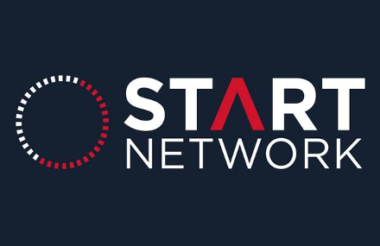A European charity has successfully transferred money to one of its country offices without going via a traditional bank but instead using Disberse - a platform using blockchain technology.
Dorcas, a Christian poverty based in the Netherlands, used the platform to transfer €5,000 to an international office in February and made a 1.15 per cent saving, compared to a bank transfer.
Charities typically pay fees on bank transfers, currency exchanges and hedging, and in theory this new platform could save the sector many millions of pounds a year, although it is too early to say this for sure.
The NGO is part of the Start Network, which is a a 42-strong coalition of international aid organisations which includes Oxfam and Save the Children that has partnered with Disberse.
Over the next year, Disberse will pilot a number of ideas within the Start Network’s existing programmes.
The early work towards this has been funded by a €50,000 donation from the Estonian government.
Moving to larger pilot
Disberse and the Start Network are now working on a larger pilot that will involve more organisations and larger sums of money, and they expect this to show larger efficiency gains.
Sean Lowrie, director of the Start Network, says: “This exciting test shows that transformation in the way money flows through the humanitarian system is not only needed, but it is possible. The Start Network is testing innovative solutions to many humanitarian challenges to enable aid agencies to be more efficient and effective.
“This new project with Disberse aims to catalyse a new way of working; one that is transparent, fast and which drives accountability to taxpayers and those affected by crises.”
For its first pilot last year, Disberse worked with a UK charity, Positive Women, to distributed funds to a local organisation in Swaziland which pays children’s school fees. The savings of 2.5 per cent on forex fees made by using Disberse enabled the charity to pay the fees of an additional three girls for a year. Being able to automatically see how funds were being distributed also meant the charity spent less time and energy monitoring the programme.
Disberse is part of the UK Financial Conduct Authority (FCA) Regulatory Sandbox, which allows innovative financial businesses to test products, services, business models and delivery mechanisms, and this pilot formed part of its testing schedule. Disberse received its E Money license at the start of this year.
Not just about money
Speaking to Charity Finance magazine for this month's cover theme on blockchain, Ben Joakim, chief executive and founder of Disberse, said the platform would not just make it easier to transfer money. He’s also hoping to achieve a wider “shift” in how the sector operates to make it more “democratic” and enable people to see the impact their donation has.
While Disberse has started with the aid sector, he doesn’t see any reason why the technology couldn’t be applied to other types of charities. “The same arguments could be made for local charities in the UK,” he says.
|
Related articles











